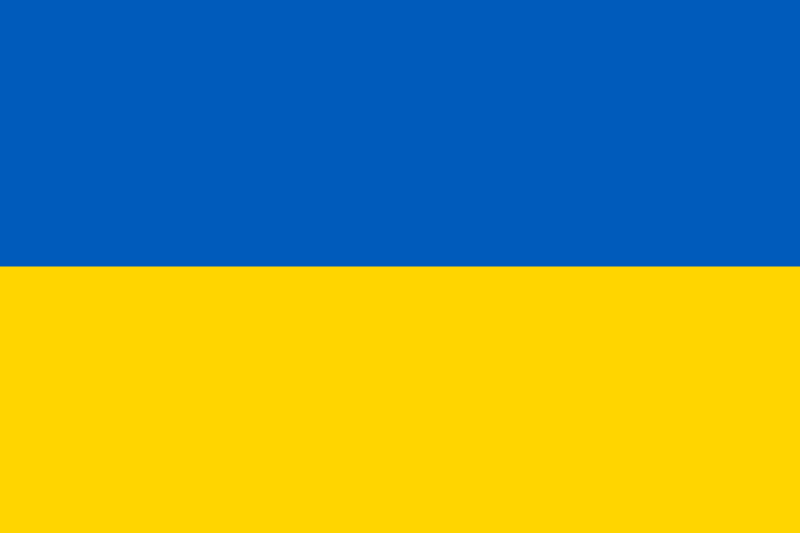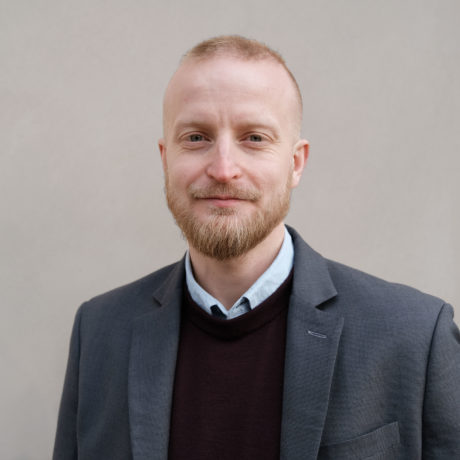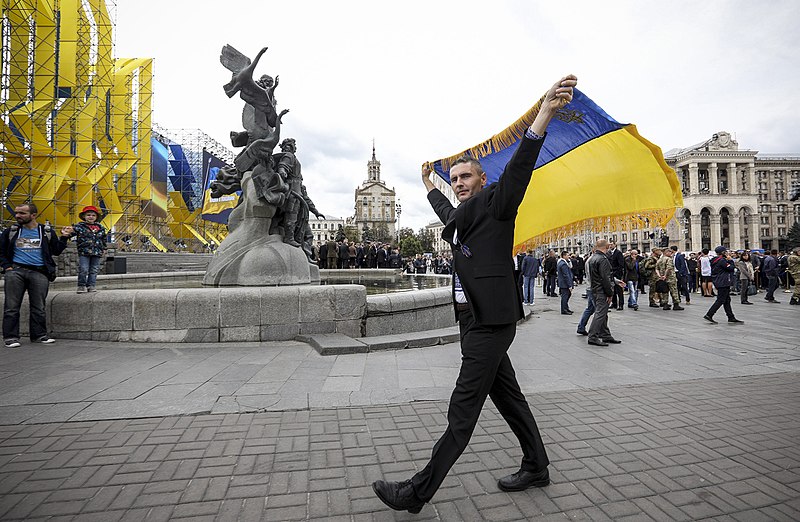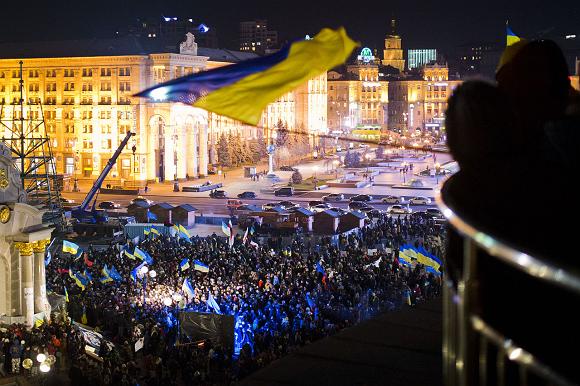
Ukraine
- Governance: Semi-Presidential Republic
- Capital: Kyiv
- Population: 43 million
- Religion: Orthodox Christianity, Greek catholic Christianity, minor groups of Catholics, Protestants, Jews, and Muslims
- Languages: Ukrainian (official), Russian and several other majority languages
- Location: Eastern Europe
- Democracy index: 5,42 (EIU, 2022)
Ukraine is located on the Eurasian Steppe in the eastern part of Europe. It borders the EU (Poland, Czech Republic, Hungary, and Romania) and Moldova in the West, Belarus in the North, and Russia in the East. In the South are the Black Sea and the Sea of Azov.
The country is Europe’s second largest – covering an area of 603,550 square kilometres. It is mostly flat, except for the Carpathian Mountains in Western Ukraine and a mountainous region on the southern parts of Crimea. The combination of a continental climate with long, warm summers, mineral rich earth, and plenty of rivers, creates near perfect conditions for agriculture.
History before 1991
Ukraine’s history dates back to the foundation of its capital, Kyiv, between the fifth and ninth centuries. The term “ukraina,” meaning “on the border” or “borderland,” emerged as early as the twelfth century, and a growing sense of Ukrainian identity gained prominence from the eighteenth century onward.
Throughout its history, Ukraine has seen various state formations and identities, influenced by interactions with foreign powers such as the Polish-Lithuanian Commonwealth, the Ottoman Empire, the Russian Empire, and later, the Soviet Union.
The 70 years under Soviet rule were marked by hardship, including the man-made Holodomor famine in the early 1930s and repression of Ukrainian language, culture, and identity. Ukraine suffered greatly during World War II, enduring significant destruction and loss of life. Despite some post-war improvements, the supression of everything Ukrainian persisted. Discontent grew in the 1980s due to corruption, economic stagnation, and disasters like the Chornobyl nuclear accident in 1986, leading to increased demands for autonomy from Moscow.
Ultimately, the accumulation of these challenges contributed to the collapse and dissolution of the Soviet Union in 1991.
Independence
Throughout its history as an independent nation, Ukraine has grappled with three challenges: an unstable economy, rampant corruption, and an increasingly assertive neighboring state.
The abrupt shift to a market economy created a small business elite that swiftly amassed immense wealth. This oligarchic system exacerbated pre-existing corruption issues, hindering development and foreign investment. It also enabled political leaders to manipulate elections, abuse power, and amass fortunes for personal gain.
Ukrainians have fiercely protested against this development, notably during the Orange Revolution. Sparked by widespread allegations of electoral fraud in the 2004 Presidential election, the protest led to he annulment of rigged election results and a subsequent fair re-run, showcasing the power of peaceful protest in driving democratic change.
The Revolution of Dignity
Protest erupted in late 2013, sparked by then-President Yanukovych’s decision to reject an economic association agreement with the EU. It quickly developed into a nationwide movement, fuelled by outrage over police brutality against protesters and laws banning freedom of speech and assembly.
As the protests grew, they evolved to encompass broader demands for democratic reforms. The revolution reached its climax in February 2014 when clashes between protesters and police turned deadly, leading to the deaths of over 100 protesters. Yanukovych fled the country, and a new interim government was formed.
The annexation of Crimea and the war in Donbas
With a power vacuum still gripping Kyiv, Russia invaded Crimea in February 2014. Simultaneously, armed coup-makers announced an impending referendum on the peninsula’s secession from Ukraine and unification with Russia. Despite lacking legitimacy, they proclaimed an implausibly high voter turnout, with over 96% purportedly favouring Russia. This manipulated outcome provided the pretext for Russia’s annexation of Crimea, just days after the dubious referendum.
Soon thereafter, Russian special forces ignited a rebellion in Ukraine’s eastern and southern region. When this rebellion was all but crushed by the Ukrainians – despite immense military, financial, cultural, and political support from Moscow – Russia invaded the Donbas-region with regular armed forces. After a year of intense fighting, the war in Donbas was partly frozen in February 2015, after an agreement between Russia and Ukraine was signed in Minsk. The fighting continued, however, with minor skirmishes for the next seven years.
See our Q&A about the annexation of Crimea.
Full-scale invasion
Following a barrage of incredulous assertions by the Russian president throughout the winter of 2021–2022, Russia launched a full-scaled invasion of Ukraine on February 24, 2022.
See our Q&A on some of the myths about the war in Ukraine.
The war is horrific in both its level of brutality and magnitude. Millions have been displaced from their homes. Hundreds of thousands of Ukrainians have fallen victim to egregious human rights abuses—ranging from unlawful detention and torture to outright murder. Russian forces have indiscriminately targeted residential areas, vital infrastructure, hospitals, religious institutions, schools, museums, and even maternity wards, leaving a trail of devastation in their wake. The war is also exacting a heavy toll on the environment, morphing into an ecological catastrophe of unprecedented proportions.
NHC and Ukraine
Since the late 1990’s, the Norwegian Helsinki Committee has been engaged in Ukraine in order to safeguard justice, freedom, and basic human rights. This includes regularly taking part in election observation and monitoring of the socio-political situation in the country. We are also working with local individuals, organisations and projects that promote and safeguard human rights.
In 2007, the NHC launched a successful project in human rights education, which has educated a whole generation of youths, and contributed to the growth and professionalisation of activist networks.
To safeguard the rights of LGBTQI-people in Ukraine, we have for several years worked with local partners to create safe spaces for the community all over Ukraine, and to stop hate crimes based on sexual orientation and gender identity.
Since the onset of war in 2014, a significant part of our work and resources been devoted to the documentation of war crimes. Together with CILRAP Case Matrix Network, we have developed an application called the Investigation Documentation System (IDOC), which is a tool used for documenting and systematising evidence, as well as building criminal cases against perpetrators.
IDOC has been used to document war crimes committed, not only in Ukraine, but also during Russia’s war in Chechnya. Our partner Truth Hounds has been on the ground since 2014, gathered testimonies from victims, witnesses, and next of kin, and registered evidence in our database. Since the escalation of the war in 2022, more than 30 human rights organisations in the Ukraine 5 AM coalition have joined this effort and are continuously working to expand NHC’s database.
Timeline
- 880: Kievan Rus’
- 1918: The Ukrainian People’s Republic
- 1922: Ukraine becomes part of the Soviet Union
- 1932: Hunger disaster in Holodomor
- 1941: World war two and German occupation
- 1954: Crimea becomes part of the Soviet Republic
- 1991: Independence
- 1994: Ukraine abolishes nuclear weapons in return for guarantees of territorial integrity
- 2004: Orange Revolution and democratic reforms
- 2013: Euromaidan
- 2014: Annexation of Crimea and armed conflict in Donetsk and Luhansk
- 2022: Full-scale invasion of Ukraine by Russian forces



